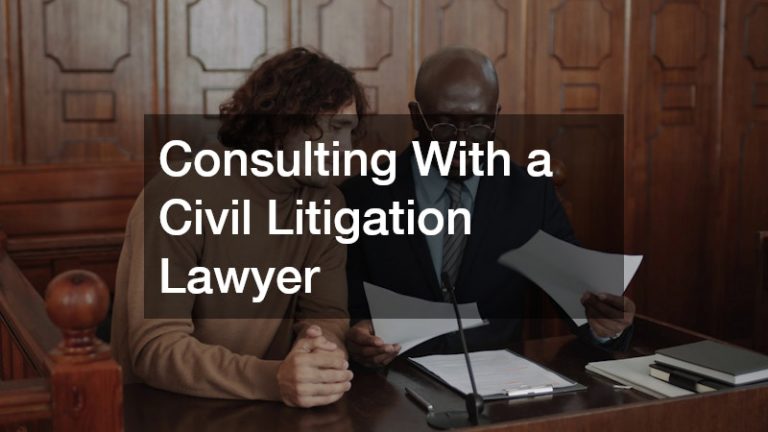

Finding a job can already be challenging, but having a misdemeanor on your record can make the process feel even harder. Many job seekers worry about whether a past mistake will hold them back. The truth is that some misdemeanors can affect employment more than others, and the impact varies based on the industry, state laws, and the employer’s hiring policies.
This guide breaks down the types of misdemeanors that can prevent employment, why they matter to employers, and what you can do to improve your chances of getting hired. The goal is to help you understand how your record may affect job opportunities—and what steps you can take to move forward.
What Employers See in a Background Check

Before diving into specific misdemeanors, it helps to understand what information employers can access. Most companies run background checks to confirm a candidate’s history, especially in roles involving money, safety, or security.
A standard background check may include:
- Arrest records (recent in some states)
- Misdemeanor convictions
- Felony convictions
- Driving history (for driving-related jobs)
- Credit reports (for financial positions)
- Employment verification
- Education verification
Most employers focus more on patterns of behavior and offenses relevant to the job. A single minor mistake years ago may not be a problem, but certain misdemeanors can raise bigger red flags.
Misdemeanors Most Likely to Prevent Employment
Not every misdemeanor affects job prospects in the same way. Some employers overlook low-level offenses, while others follow strict hiring rules. The impact also depends on how closely the misdemeanor relates to the type of work.
Below are the most common categories of misdemeanors that may prevent employment.
1. Theft and Property Crimes
These are among the most damaging misdemeanors in the job market. Employers value trust, and theft-related offenses often signal risk.
Examples of Theft-Related Misdemeanors:
- Shoplifting
- Petty theft
- Vandalism
- Tampering with property
- Breaking and entering (misdemeanor level)
Jobs most affected:
- Retail
- Warehousing
- Cash-handling positions
- Banking
- Customer service
- Delivery jobs
- Hospitals and care facilities
Many employers view theft as a direct threat to their business, especially if the job involves access to money, merchandise, or confidential information.
2. Violent or Assault-Related Misdemeanors
Even if the offense is classified as a misdemeanor, violence-related crimes can strongly affect employment options.
Examples include:
- Domestic violence (misdemeanor level)
- Simple assault
- Disorderly conduct involving fighting
- Threatening behavior
Jobs most affected:
- Schools
- Healthcare
- Security
- Customer-facing roles
- Government jobs
Employers worry about workplace safety and potential liability, so violent misdemeanors often lead to careful evaluation—or automatic disqualification.
3. Drug-Related Misdemeanors
Drug offenses can impact employment depending on the type of job and how recent the conviction is.
Examples:
- Possession of a controlled substance
- Public intoxication
- Possession of drug paraphernalia
Jobs most affected:
- Healthcare
- Childcare
- Jobs requiring a commercial driver’s license (CDL)
- Law enforcement
- Government positions
However, many employers have become more open to applicants with older or minor drug offenses, especially with changing state laws.
4. Driving-Related Misdemeanors
These may not affect office jobs, but they matter significantly for driving or transportation roles.
Examples:
- DUI / DWI (misdemeanor level)
- Reckless driving
- Driving with a suspended license
- Hit-and-run (misdemeanor level)
Jobs most affected:
- Delivery drivers
- Truck drivers
- Rideshare drivers
- Bus drivers
- Courier services
Insurance companies also influence hiring decisions in industries where employees must be insurable.
5. Fraud and Financial Misdemeanors

These offenses are serious because they signal dishonesty, making them risky for many employers.
Examples:
- Check fraud
- Credit card fraud
- False statements
- Embezzlement (misdemeanor level)
Jobs most affected:
- Banking
- Accounting
- Office administration
- Real estate
- Government roles
Even minor fraud offenses may create challenges in finance-related careers.
6. Harassment or Stalking Misdemeanors
These types of misdemeanors often involve behavior that may suggest risk in the workplace.
Examples:
- Harassment
- Stalking
- Disturbing the peace
- Threatening communications
Jobs most affected:
- Schools
- Customer-facing roles
- Healthcare
- Security
- Public-sector positions
These offenses are a concern for employers because they relate to interpersonal behavior and safety.
7. Sex-Related Misdemeanors
These are among the most limiting misdemeanors, even if the offense is low-level.
Examples:
- Indecent exposure
- Public lewdness
- Prostitution
- Solicitation
Jobs most affected:
- Any job involving minors
- Healthcare
- Public-sector jobs
- Education
- Caregiving
- Social services
Even if not a felony, sex-related misdemeanors cause long-term consequences in employment screening.
How Long Misdemeanors Affect Your Job Search
The impact of a misdemeanor depends on several factors:
1. Time Since the Offense
Older misdemeanors, especially those over 7 years old, may have less impact due to state laws or employer policies.
2. Type of Industry
Some industries are heavily regulated and have strict background check rules.
3. Whether the Misdemeanor Was an Isolated Incident
Employers may give more grace for a one-time mistake, especially if you’ve shown growth since then.
4. State Laws on Background Checks
Some states limit what employers can consider.
Others “ban the box,” preventing questions about criminal history on initial applications.
Industries With Strict Hiring Standards
Some fields are more sensitive to criminal records due to safety, trust, or legal requirements.
Industries that commonly reject applicants with certain misdemeanors:
- Healthcare (patient safety rules)
- Education (strict background requirements)
- Government and military (security clearances)
- Banking and finance (financial honesty)
- Transportation (DOT regulations)
- Childcare and elder care (vulnerable population laws)
- Security roles (background reliability)
If your misdemeanor is related to the nature of the job, employers are more likely to deny the application.
Industries That Are More Lenient
Some employers focus more on skills than on past mistakes. These industries often hire applicants with misdemeanors—depending on the offense.
More forgiving fields include:
- Skilled trades (construction, plumbing, electrical)
- Manufacturing
- Warehousing
- Food service
- Landscaping
- Hospitality
- Cleaning services
- Tech roles (depending on the nature of the offense)
While not guaranteed, your chances are generally higher in these areas.
How to Improve Your Job Prospects With a Misdemeanor
A misdemeanor doesn’t automatically prevent employment. With the right strategies, many people successfully rebuild their careers.
1. Be Honest if Asked
Lying on an application can lead to immediate rejection.
If the employer asks about criminal history, answer truthfully but briefly.
Focus on:
- Accepting responsibility
- Explaining what you learned
- Showing how you have changed
- Highlighting positive recent behavior
2. Prepare a Clear Explanation
Employers want to know context, not excuses.
A good explanation should include:
- What led to the incident
- How long ago it happened
- What you’ve done since
- Proof of personal growth
Practicing your explanation ahead of time can reduce stress during interviews.
3. Gather References
Strong references help balance concerns about criminal history.
Good sources include:
- Former employers
- Teachers or professors
- Community leaders
- Mentors
- Volunteer supervisors
References show that trustworthy people support your character.
4. Seek Expungement or Record Sealing
Depending on the state, some misdemeanors can be:
- Expunged
- Sealed
- Dismissed
Benefits include:
- Many employers can’t see sealed records
- Expungement improves job opportunities
- It reduces stigma and stress
Consulting an employment or criminal attorney can help you start the process.
5. Apply to Employers Known for Second Chances
Some companies openly support hiring people with criminal records.
Examples of second-chance employers include:
- National restaurant chains
- Manufacturing companies
- Construction firms
- Some major retail stores
- Temp agencies that specialize in reentry workers
These employers care more about work ethic and reliability than past mistakes.
When a Misdemeanor Should NOT Prevent Employment
Not all misdemeanors are relevant to all jobs.
For example:
- A DUI shouldn’t affect an office job with no driving.
- A shoplifting charge may not matter for construction or landscaping jobs.
- A disorderly conduct misdemeanor from college may not matter for fields unrelated to customer service or safety.
If the offense has nothing to do with job duties, laws in many states require employers to make fair, individualized decisions.
Know Your Rights as a Job Applicant
Employment laws exist to protect people with criminal records.
Some key legal protections include:
Fair Credit Reporting Act (FCRA)
Employers must:
- Get your permission before a background check
- Give you a copy if they plan to reject you
- Allow you to dispute errors
EEOC Guidelines
Employers should consider:
- How old the offense is
- Whether it relates to job duties
- Whether the applicant has rehabilitated
Ban-the-Box Laws
Some states require employers to wait until later in the hiring process before asking about criminal history.
Learning your rights can help you handle background checks with more confidence.
Final Thoughts
A misdemeanor on your record can create challenges, but it doesn’t mean you’re shut out of future opportunities. The impact of a misdemeanor varies based on the nature of the offense, the job you’re applying for, and how you communicate your growth and readiness to move forward. By understanding how employers evaluate these situations, you can approach your job search with more confidence and strategy.
Many people successfully rebuild their careers by being honest, staying prepared, and showing evidence of positive change. With the right mindset and support, a past mistake doesn’t have to define your future.
If you’re unsure about your options, consider consulting an employment lawyer, a career counselor, or a reentry support organization. These professionals can provide guidance, help you understand your rights, and assist you in finding the best path forward.




